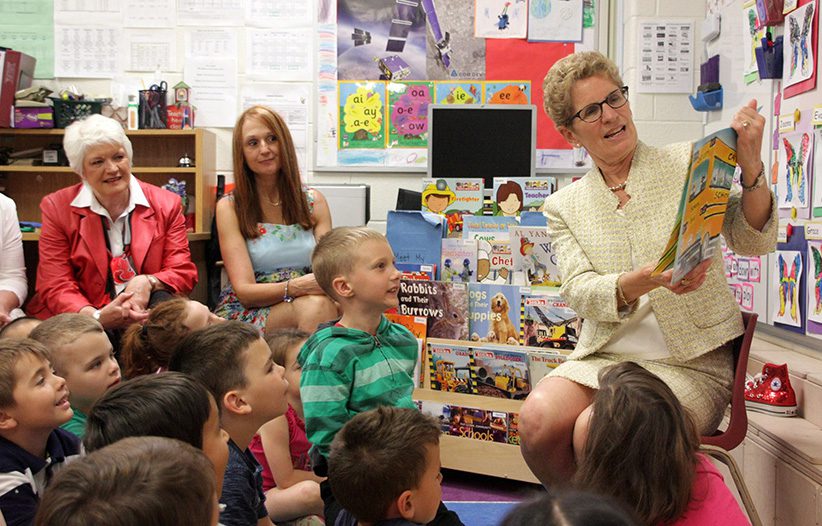This is going to come across as paradoxical, but sometimes the worst thing that can happen to a political cause is winning.
After all, once you've vanquished whatever evil force it is you're battling for the good of humanity, it's possible your side will lose its raison d'être.
No enemy equals no reason to keep fighting.
So politically-speaking, to keep your side mobilized and unified and ready to sacrifice, it's a good strategy to declare a war that's unwinnable, against a foe that's unbeatable.
Certainly, the war against crime, the war against poverty and the war against drugs have all lasted a lot longer than did the war against Hitler.
Now, it seems, our very own Prime Minister Justin Trudeau is waging an unwinnable war of his own a war against "climate change."
And that worries me a bit.
Now before I go on, let me hasten to say my purpose here isn't to annoy Al Gore or Elizabeth May or Catherine McKenna, by suggesting climate change is some kind of hoax.
My point is about politics, not science.
And the politics of the situation is this: no matter how many carbon taxes are imposed, no matter how many trendy hybrid vehicles crowd our roads, no matter many monstrously-ugly, towering windmills scar the beauty of our rural landscapes, the threat of climate change, I predict, will never, ever go away.
In other words, no political leader opposed to climate change, such as Trudeau, will ever go on TV to say something along the lines of: "Congratulations fellow citizens, we've won; the ice caps are no longer melting, polar bears are now happily frolicking on the Arctic snow, David Suzuki is beside himself with joy; the environment is safe."
Indeed, I'm confident that fifty years from now Canada's leader, who I presume will be King Justin III, will appear on a hologram and urgently proclaim something like "the growing ecological menace of climate change is now more dangerous than ever, so I have no choice but to hike your taxes again!"
And here's the most interesting aspect to a climate change war you can't win it, but you sure can lose it.
Open any newspaper or magazine today, and you'll probably find a headline like, "The World is Losing the War Against Climate Change." (Actual headline from The Economist.)
If nothing else, war metaphors make for easier fear-mongering.
And what makes the unending war against climate change different from other unending wars, is that in this case the stakes are allegedly so high.
Basically, we're being told that if climate change wins, civilization itself will die.
And that might be true, I don't know.
But what I do know is that combining a never ending war with an apocalyptic threat can lead to some dangerous outcomes.
Here's why: as long as the climate change war is being waged and as long as the fate of humanity supposedly hangs in the balance, authorities will always be justified in asking for more.
Never-ending war means never-ending demands.
So politicians fighting a climate war will be forever justified in continually raising taxes; they will be forever justified in allowing environmental bureaucracies to keep extending their tendrils into the lives of consumers, and they will even be forever justified in surrendering national sovereignty to supranational organizations.
Where will it end?
My fear is that one day climate change fighting politicians will, in order to save the world, judge it reasonable to curtail individual liberty, to curtail individual rights and to curtail democracy.
Sure, I know lots of people out there will accuse me of exaggerating such a danger.
But those people better not blame me when one day the Grand Director of the "International Climate Change Directorate" dispatches an army of Green Legionnaires to ruthlessly stamp out anti-carbon tax dissent in Alberta.








